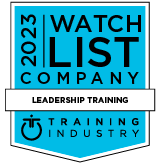How to Drive Lasting Behavior Change (Not Just Workshop Buzz)

Accelerate learning, sustain culture transformation, and embed sticky habits.
At DX Learning, we believe the big difference between “another leadership program” and “lasting culture change” boils down to one thing: habits. Not the sporadic fire-hose learning sessions. Not the cool slide decks. But the everyday micro-actions that become the backbone of your culture.
I just delivered a keynote at a major conference, and here’s the distilled version of what every learning leader, culture ambassador, and organizational development pro needs to know. Think of it as your six-step playbook for turning good intent into sustained behavioral change.
1. Lead with a Growth Mindset — The Foundation for Lasting Behavior Change
Why should you care? Because mindset isn’t fluff. As professor Carol Dweck and colleagues have shown, people who believe their abilities can grow are more likely to rebound from setbacks, take on challenges, and sustain progress.
In our programs at DX Learning, we frame it like this: “I am someone who….” rather than “I want to…”. In tangible terms, instead of “I want to give better feedback,” try “I am someone who helps my team grow.” The shift from doing to being signals deeper change. The goal is to create identity habits. If you believe in who you want to be, you will find more ways to achieve your goal. When you shift your position in leadership programs from “teaching skills” to “shifting identity,” you move from training to transformation.
2. Elevate Self-Awareness — Because "I don't know what I don't know" is Real
Self-awareness is the underinvested muscle in many organizations. Research suggests that although the majority believe they’re self-aware, only a fraction actually are. According to Tasha Eurich's research in her book, “Insights,” 95% of people think they are self-aware, when only 10-15% truly are.
In practice: deploy feedback loops, ask participants not only what they want to change — but how others see them. At DX Learning, we design micro-surveys, peer reflections, and accountability touch-points so that self-awareness becomes a strategic asset.
3. Practice Acceptance — Because Culture Change is Messy
Change isn’t linear. Habits don’t flip on like a light switch. Neuroscience shows our brains are wired for familiarity, not transformation.
We tell participants, “You will trip up. You will default to old patterns. And that’s okay, it’s part of the process.” Acceptance here isn’t giving up; it’s seeing reality clearly, acknowledging where you are, and choosing what you will do next.
4. Apply Best Practices — But Make Them Yours
At DX Learning, we don’t believe in cookie-cutter “best practices” that feel like paint-by-number. Instead, we help clients contextualize. For example, we found that the most downloaded tool from our leadership academies wasn’t a grand framework; it was a simple one-on-one meeting template. The one thing participants complain most about is that there is never enough time in the day. I would push back; it’s more about the intentional focus than the lack of time. When designing programs, it is important to be as simple and prescriptive as possible. Make it as easy as possible for participants to use the tools and best practices.
And yes — today that means we encourage smart use of AI: ask it not just for answers, but for better prompts. (“Hey ChatGPT — what’s the best way to ask my team for upward feedback if I’m senior?”) Framing it as “Step zero: get the prompt right” shifts the power to the learner.
5. Break Learning into Application — Because Doing > Absorbing
The real magic happens when people practice in real time. Role-plays, breakout rooms, live simulations — we build them into our modules. But we go further: we pair participants as accountability partners and check in two weeks later.
“What did you commit to? How’s it going?”
This element significantly boosts retention and follow-through. It’s the difference between “That was a great session” and “That changed what I actually do tomorrow.”
6. Don't Just Train — Reinforce via Micro-actions
This is where conversion from intention to habit happens. Research on micro-habits (tiny repeated actions) shows they bypass motivation fatigue and build sustainable change.
We integrate “micro-action platforms” where learners commit to 2-minute actions — like “Identify one new person I will ask about their career story this week.” Over time, these micro-actions accumulate into cultural muscle. And they deliver ROI. One client reported thousands of hours saved because learning became embedded in daily behavior.
The Floss Test — A Simple Metaphor with a Big Punch
Yes — we seriously talked flossing. Why? Because habit formation is exactly the same:
- Cue → Behavior → Reward
- I placed the floss on top of my toothbrush (cue).
- I floss nightly (behavior).
- Minty fresh reward.
That’s a habit loop in action. When we design DX Learning’s programs, we ask: “What cue do we embed in their workflow? What micro-action do they take? What reward (however small) keeps the loop alive?”
TL;DR — The Six Pillars of Habit-Driven Culture Change
- Mindset — Shift identity from fixed to growth.
- Self-Awareness — Discover blind spots.
- Acceptance — Recognize progress isn’t perfect.
- Best Practices, Own Them — Contextualize the tools.
- Application — Practice + accountability > theory alone.
- Micro-Actions — Tiny, repeated behaviors build habits.
Why This Matters for DX Learning Clients
When culture is defined by leadership programs that disappear after a workshop, the ROI disappears too. But when learning becomes habitual — when people do things differently every day — culture shifts. It evolves. It sticks. And you start seeing metrics move: engagement, performance, retention, psychological safety.
That’s not just learning. That’s transformation.
If you’re ready to move beyond “nice workshop” and toward “habit-infused culture change,” we’re your partner. Let’s build the habits that shift your organization.
Insights

Subscribe to Our Monthly Newsletter!
For managers and talent professionals who truly believe in putting people first, the CARE to Win blog is your gateway to the latest insights on human-centric leadership. Join us as we champion the people first movement.
Need some time apart? Are we emailing you too often? Just give us your feedback, and we promise we’ll respond. We really do care. And if it’s still too much, just unsubscribe. It’s cool.
 Matt Sandel
Matt Sandel


